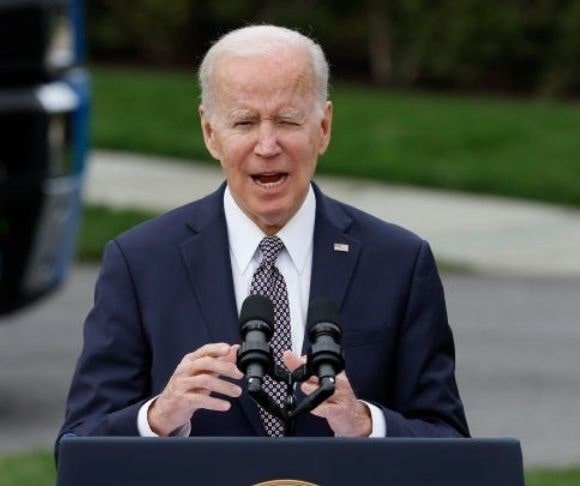Throughout the year before Russian combat forces invaded Ukraine, President Joe Biden’s administration was demonstrably reluctant to stand up to Moscow, even though at this moment in history the United States is the most powerful nation ever.
If not willing to confront Putin, what is the White House strategy to bring an end to the carnage in Ukraine? “You know, it’s a great question,” General Jack Keane, retired US Army vice chief of staff, responded in a Fox News interview. “I think, fundamentally, the United States’ underlying strategy in dealing with the war before it began and after it began is not to provoke Putin. It’s an unstated strategy, but it is operating every single day.”
Keane’s observation answers a lot of questions. Why did Biden, in a Jan. 19 press conference, hint that Russia could take a little slice of Ukraine, and no one would get excited? Why did the United States slow its arms and other support shipments to the Ukrainian government, doling them out piecemeal before the Russian invasion? Why has the United States not condoned Poland providing 28 Soviet-era MIG-29 fighter jets? “[T]he intelligence community has assessed the transfer of MIG-29s to Ukraine may be mistaken as escalatory,” is how John Kirby, Pentagon spokesman, put it. Though it is hard to construe providing more of a weapon system the Ukrainians already have as “escalatory.”
The failure of the administration to provide more capable, longer-range S-300 anti-aircraft systems is inconsistent with Biden’s strong words of support for Ukraine during his recent visit to Poland. But much was left unsaid. “But there was a bit missing, the how – how exactly we are going to make sure that Putin does not win,” Michael Baranowski, German Marshall Fund’s Warsaw office senior fellow and director, told the Washington Examiner. But as Keane explained it, the Biden crowd doesn’t want Putin to lose, either. “And the reason is fear of adverse consequences,” Keane explained.
 That explanation is sobering. A nation with the most capable military in the history of warfare should not be cowering in fear of “adverse consequences.” This sends the message to America’s adversaries — especially China, Iran, and North Korea — that, “despite all of its might, the US is a paper tiger.”.
That explanation is sobering. A nation with the most capable military in the history of warfare should not be cowering in fear of “adverse consequences.” This sends the message to America’s adversaries — especially China, Iran, and North Korea — that, “despite all of its might, the US is a paper tiger.”.
When Russia first rattled the nuclear saber, putting Moscow’s strategic forces on higher alert three days after Putin’s forces invaded Ukraine, the Biden White House did not respond in kind. National security pundits complimented the US national security team for showing restraint and not taking the bait. But it appears now that the decision not to lift US armed forces to a higher Defense Condition level was based in fear.

Joe Biden (Photo by Chip Somodevilla/Getty Images)
Many would say that fear and caution have been hallmarks of Biden’s leadership. During the 2020 presidential campaign, Biden did not demonstrate robust and vigorous outreach to voters; instead, he cowered in his basement. After being elected and assuming his office, his first summit meeting with Putin telegraphed apprehension unbecoming a US president. Biden did not have the traditional joint press conference with his Russian counterpart; instead, the two world leaders spoke separately to the press. “Biden called on just seven handpicked reporters before leaving the stage after 30 minutes when you include the time of his scripted remarks,” Joe Concha wrote in The Hill.
Contrast Biden’s performance with that of Russian leader. Putin talked for 55 minutes, no teleprompter, no script no note cards. Concha suggested Biden’s staff was afraid that if reporters were called on at random, the US president’s answers would be inept, casting doubt on his mental acuity. Fear is contagious. When the leader is fearful, it infects those who follow.
The Biden national security team cannot be successful with a strategy of fearful caution in handling Putin’s invasion of Ukraine. Americans want Putin to lose. The White House team should want that, too.
The views expressed are those of the author and not of any other affiliation.




